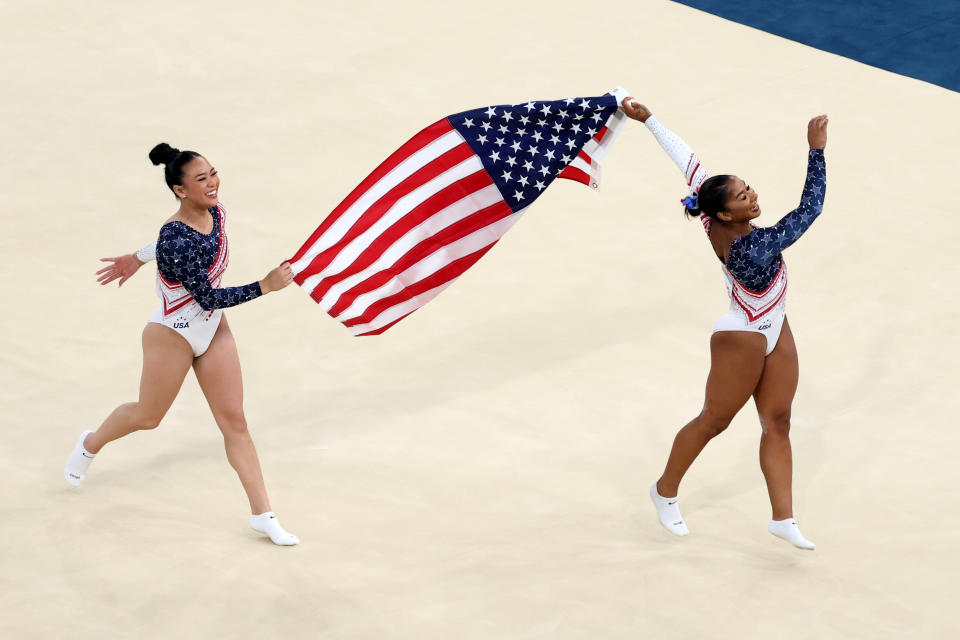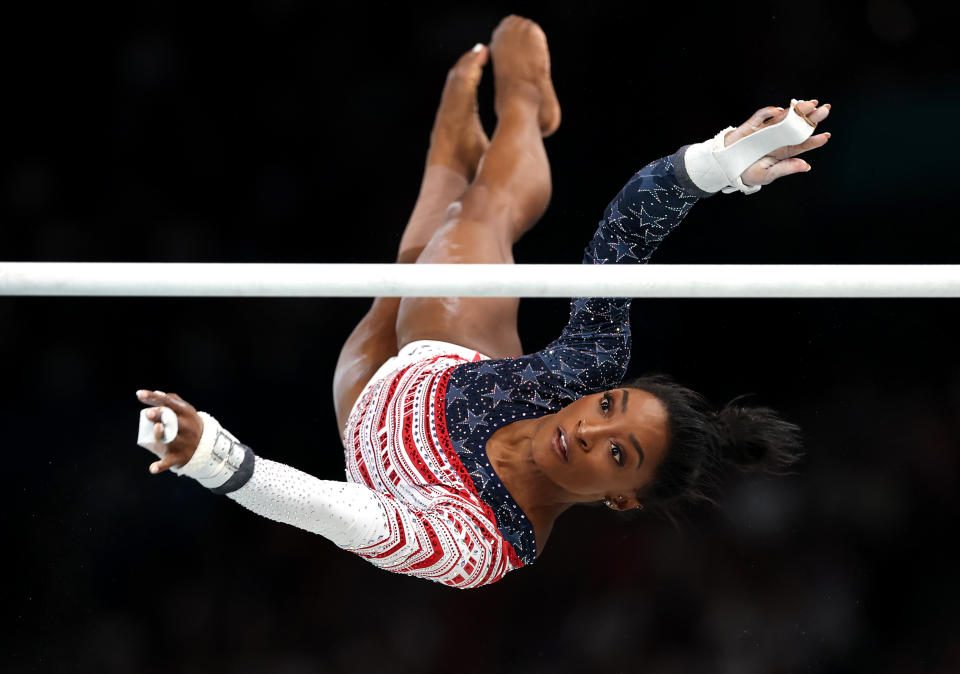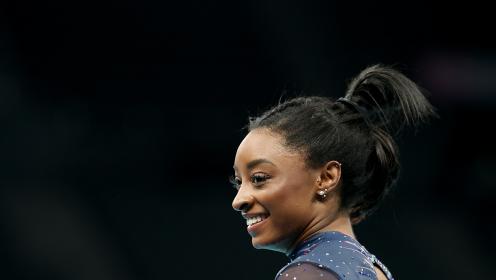
Medal table | Olympic schedule | How to watch | Olympic news
PARIS — They came seeking redemption — both as a team and as individuals.
They came to return America to the top of the women’s gymnastics podium. They came to give themselves magical moments like these: adoring fans showering them with cheers and “U-S-A” chants after the bubbled-up pandemic Olympics of Tokyo.
They came to win.
And win they did.
The United States’ women’s gymnastics team dominated, winning gold in team competition here with a score of 171.296, a full 5.802 ahead of second-place Italy. Brazil took bronze.
It was mostly a runaway train of talent and tenacity. The Americans led early — by 1.434 after the first rotation — and while the final score didn’t approach the commanding 9.59 margin of victory in Rio 2016, this was never really in doubt. The U.S. recorded the highest score on all four rotations.
It returned Olympic champion status to the U.S. after it slipped to silver in Tokyo when star Simone Biles had to withdraw after a single vault. The Russians won then, but weren’t here this time, essentially banned due its country’s military action in Ukraine.
The Americans previously won team gold at the 2012 and 2016 Olympics and have won every team World Championship since 2011.
Quite perfectly, it ended with Biles delivering a rousing 14.666 on floor, her most electrifying event in front of a hyped and packed Bercy Arena.
They — Simone Biles, Sunisa Lee, Jade Cary and Jordan Chiles — did it as a team of 20-somethings, a rarity in a sport that tends to favor the springing tendons of youth. They did it as four competitors from Tokyo, where even great moments were robbed a bit by the isolation of the pandemic.
They did it despite endless personal doubts about whether returning here, let alone triumphing was possible.
They did it together, a “sisterhood” in their words, four women full of life experiences — college and marriage and experience and so on. This time with beaming smiles and waves to the crowd as they rolled through this event.
Biles, 27, was part of that golden 2016 team and won all-around gold in Rio as well. Tokyo was a disaster, though, as she suffered from an inability to judge where she was in the air during twists. She had to drop out of the team event, sparking a massive controversy and waves of criticism.
Biles “never pictured going to another Olympic Games after Tokyo just because of the circumstances,” she said last month. “I never thought I’d go back in the gym again and be twisting [and] feel free.”
Instead, she worked until she wasn’t just back, but even better. She won the 2023 individual world championships and has pushed the sport to unprecedented levels of difficulty.
On Tuesday, wearing a wrap around her left calf to support some tightness she felt in qualifying, she was clearly the best gymnast in the world. She hit a team-high 14.900 on the vault — the event that she couldn’t complete in Tokyo — then followed with a 14.400 on bars.


Lee, 21, stepped in for Biles in Tokyo and helped lead the Americans to that hard-fought silver. Two nights later she won all-around gold. Yet, just 11 months ago doctors didn’t think she’d ever do gymnastics again due to a kidney disease diagnosis.
“There were so many times where I felt like quitting,” she said last month.
The Americans are lucky she never did. She fought through some small mistakes to a team-high 14.566 on bars, securing first after two rotations. She later helped lift Jordan Chiles after she fell off the beam, by bringing a near flawless performance and a huge 14.600 score — .577 above her qualifying score.
Carey, 24, was at the Tokyo Games, but not officially a member of Team USA or a participant in the team competition. She qualified for those Games through a now-closed system where she competed around the world and racked up enough points to gain entry outside of making the traditional five-person American team. She couldn’t compete in the team event or even wear the same leotards as the official Team USA members such as Biles, Lee and Chiles.
She won an individual gold in floor anyway, justifying her presence and talent. The team event holds a special place, though, for American gymnasts. After taking a break from the international level of the sport and starring at Oregon State, Carey built herself back up to make it here.
Chiles, 23, was unexpectedly forced into service on all four disciplines in Tokyo after Biles dropped out. The silver was her only medal. Now, after winning multiple NCAA titles at UCLA, the plan called for her, along with Biles, to compete in everything, a sign of her growth and experience.
On vault, Chiles (14.400) and Carey (14.800) started strong, each beating their qualifying scores and allowing Biles to attempt a Cheng rather than the more difficult double pike and scoring a 14.900. It was enough for first after the initial rotation.
On bars, Chiles delivered a 14.366, Biles a 14.400 and Lee a 14.566 to maintain the lead.
On beam, the team brushed off a fall by Chiles as she leapt onto the beam, dropping her score to 12.733. Lee cleaned that up with a huge 14.600 on beam to restore the scoring advantage. Biles finished the rotation with a 14.366.
Finally came the floor, with Lee 13.533, Chiles 13.966 and Biles 14.666 closing out a golden night.
The team competition features eight qualifying countries of up to five gymnasts. Three are selected for each discipline and all scores are tallied, leaving little room for error. The United States’ final team member — 16-year-old Hezly Rivera — did not compete in the team event but won gold, nonetheless.
The women’s gymnastics competition continues Thursday (12:15 p.m. ET) with the all-around competition. Both Biles (first in qualifying) and Lee (third) will participate, the first time ever the last two all-around champions will compete in an Olympics.

